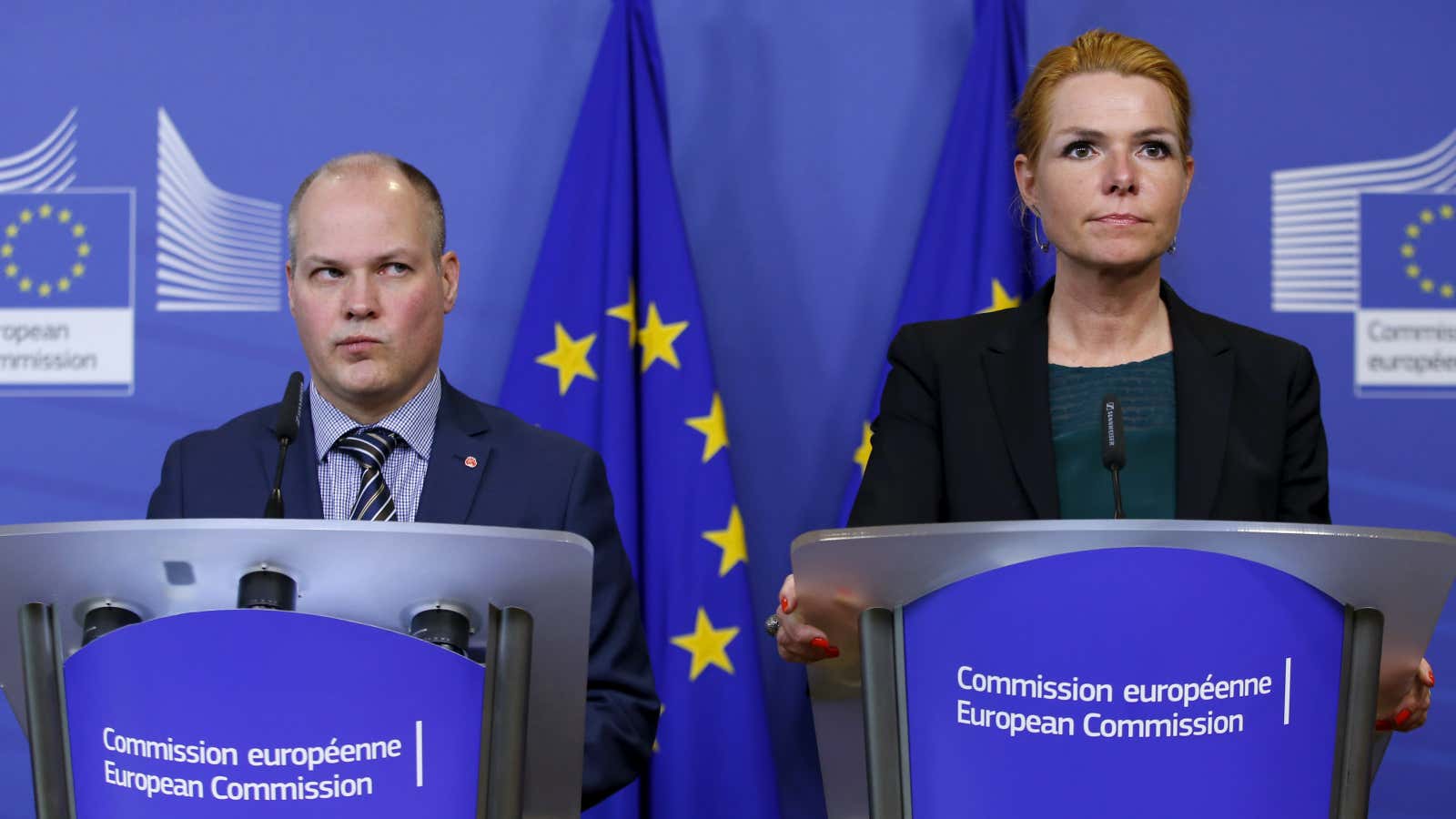Swedish police have been accused of covering up a spate of sexual assaults during a summer music festival in Stockholm and during recent New Year’s celebrations in Malmö. These allegations surfaced less than one week after a similar uproar in Germany, where Cologne’s police chief lost his job over the public’s belated discovery of some 500 sexual assaults that occurred there on New Year’s Eve.
Organizers of We Are Stockholm, a youth music festival that attracts 170,000 teenagers every August in Sweden’s capital, reportedly noticed young men “working the crowds” together to grope girls in 2014. According to internal police memos obtained by Dagens Nyheter, the Swedish daily newspaper that broke the story (Swedish) this weekend, Stockholm police were on high alert for this type of crime during the 2015 festival—though they did not make any public announcements about it.
The memos refer to “the problem with young men who rub themselves against young girls in the audience,” and a “gang” of “refugee youths” from Afghanistan. Police removed 200 individuals from the 2015 festival in connection with this “problem,” according to the BBC, but did not inform the public.
Today (Jan. 12), a Stockholm police spokesman said: “We should certainly have written and told people about this, no doubt,” but denied a deliberate cover-up.
Separately, a police spokesman in Malmö, Sweden, today told news outlet Sydsvenskan (Swedish) that ”gangs” of men surrounded and molested women in the city on New Year’s Eve, and many of the men apprehended that night were “unaccompanied” young refugees—though none were arrested, and no women filed official police reports.
Like Germany, Sweden has an exemplary reputation for accepting high numbers of migrants and refugees, but the recent accusations have fueled fears of criminals within the immigrant population. Increasing numbers of Germans and Swedes are now criticizing their leaders for letting so many people across the borders, and the notion that authorities may have tried to downplay or hide the news has compounded the public’s dismay.
